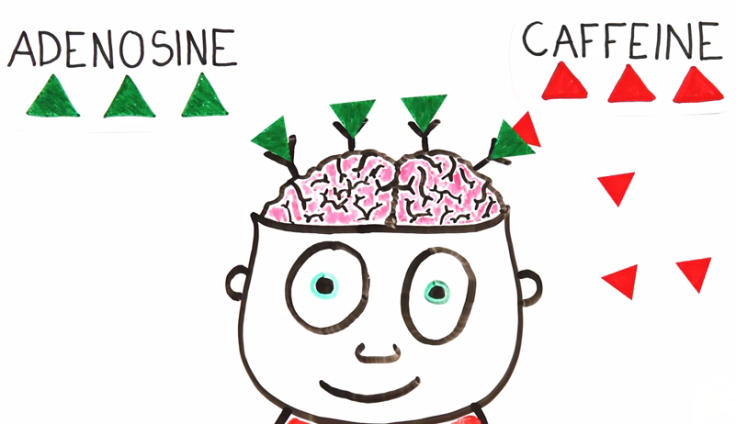Can Too Much Caffeine Kill You? Find Out What Coffee Does To Your Brain

For some people, it’s the first thing to hit their lips in the morning. For other people, it’s what they go to for their afternoon pick-me-up. Whether you’re a coffee drinker or not, there’s no denying the popularity of coffee. There is also no denying the effect caffeine has on the brain in order to provide that energized feeling we get from coffee. Let’s take a look at what affect coffee has on our brain through caffeine’s relationship with other chemicals.
It all starts with adenosine, a molecule in the brain that is responsible for that tired feeling we all dread halfway through the day. When we sleep our brain’s concentration of adenosine decreases, causing that first feeling of wakefulness in the morning. Since caffeine has a similar structure to adenosine, as we drink coffee the receptors that bind with adenosine to produce tiredness are replaced by caffeine molecules. While this effect is desirable for the time being, over time the brain will begin to produce more receptors for caffeine, which leads to withdrawal symptoms when you miss that daily cup.
Time for the age-old question: Can too much caffeine kill you? Yes, sort of. The lethal dose of caffeine is considered somewhere around 150 milligrams (mg) per kilogram (kg) of your body. According to the example used in this Asap SCIENCE video, a person weighing 70 kg (154 pounds) would need 14,000 mg of caffeine to overdose. So it would take 70 150-mg cups of coffee to kill someone weighing just over 150 pounds. They would also have to consume all of the cups at once, something their body would not allow.
Here’s a look into what else coffee is doing to your brain:



























